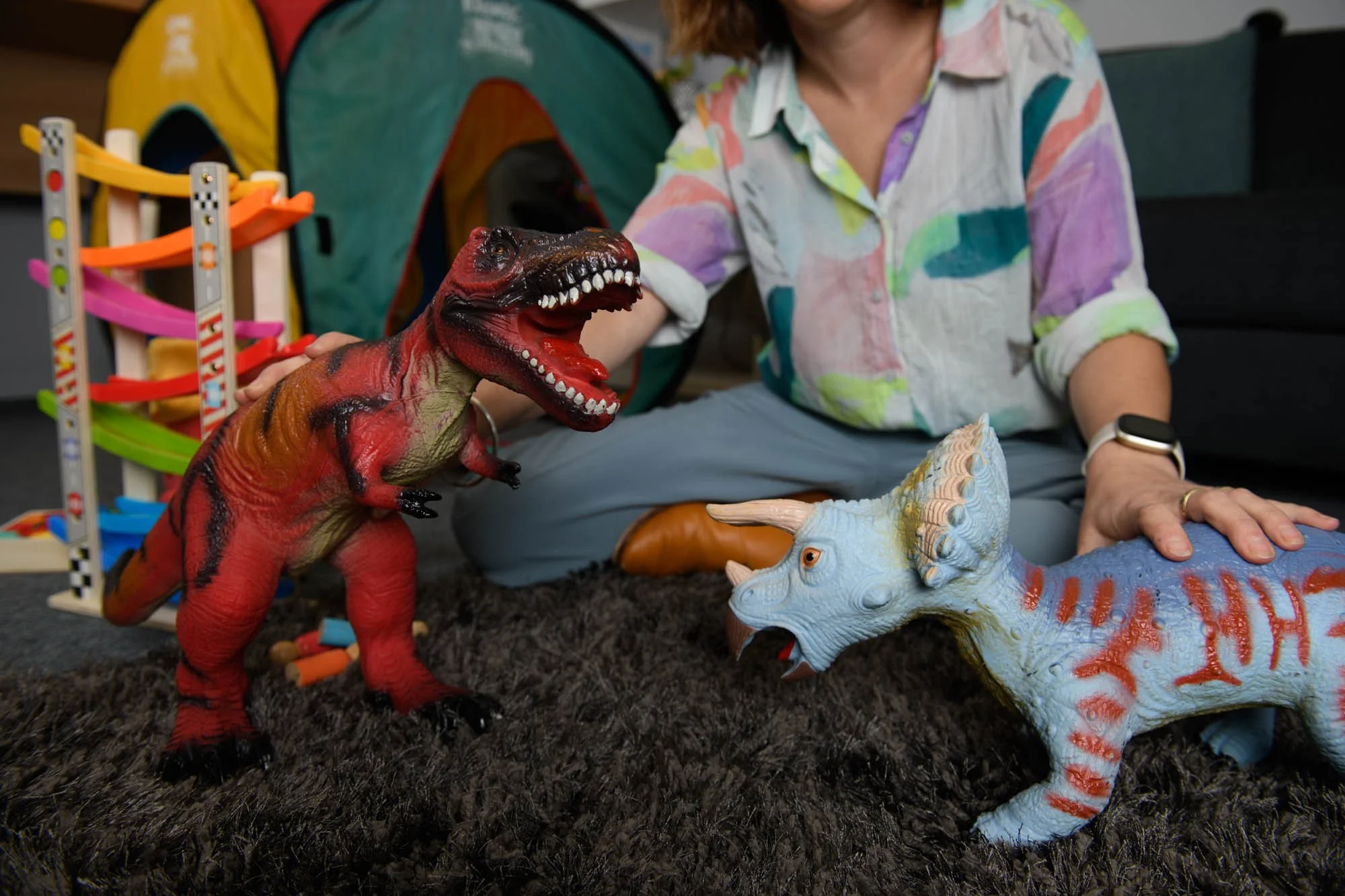By Ange Bertram
Play therapy is a journey of self-discovery that supports development and wellbeing
As children, we are intrinsically motivated to play. Play is our way of exploring the world around us and working out how and why we exist within it. Through play we find joy, friendship, our capabilities and unique strengths. It is also through play that significant development milestones, perceptions of self and morals are acquired.
Play therapy offers a safe space to support this personal growth. As children communicate their intentions, solve problems, navigate social interaction (with therapist) and express feelings and ideas, they are not only discovering positive self-concepts and abilities, but strengthening neural pathways in the brain through playful lived experiences.
Imagine a child who persists in building a tower in the playroom, they discover they can problem-solve and that effort equals outcome. Through this play that child develops capacity to persist in other ways outside of the playroom. The same applies for a child who has little confidence but discovers in the safety of the playroom though freedom of choice and exploration that they can make decisions, trust their judgement and do so confidently. Social capacities can be practiced through shared play with a therapist who encourages a child to express their perceptions, turn take and consider the ideas of others.
By giving children moments of play and space to express feelings how ever they feel appropriate, instead of what is socially accepted, we are allowing children freedom to discover how to regulate and make choices. Regulation, self-esteem, social and cognitive capacities can all be practiced and discovered in a playroom. If you are a parent, educator or health care professional looking to support a child’s development and wellbeing, therapeutic use of play is a worthy consideration.
Ange Bertram is a Play Therapist and Early Childhood Teacher
Next Blog… Why we as parents need to encourage healthy risk taking

